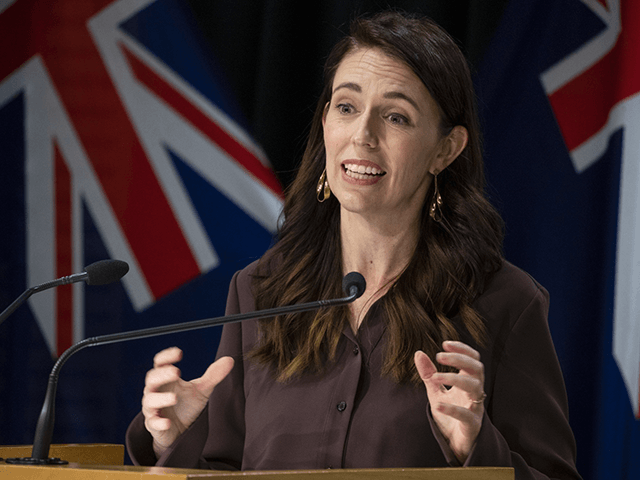New Zealand, often held up as the best example outside China of an authoritarian government controlling the spread of Chinese coronavirus with harsh lockdowns, is currently experiencing its worst coronavirus death rates of the entire pandemic.
Reuters reported on Friday that New Zealand had 151 fatalities during the week ending July 16, worse than its worst weekly total during the initial coronavirus outbreak. Twenty-six people died over the last 24 hours, all of them reportedly over 60 years old. The NZ Herald reported more than half of the coronavirus deaths were people over 80 years of age.
The government documented 64,780 active cases over the past seven days, but health officials believe the true total is considerably higher due to unreported infections. On the bright side, hospitalization levels are lower than during the previous outbreak, possibly thanks to high vaccination rates and the relatively less lethal nature of the omicron variant.
Reuters implied New Zealand grew complacent after a successful vaccination campaign:
Once regarded as a model for preventing Covid infection, New Zealand’s swift response to the pandemic and its geographic isolation kept it largely free from the virus until the end of last year.
The government dropped its zero-COVID policy this year once the population was largely vaccinated. Since then the virus has been allowed to spread.
“Zero Covid” is also the name of China’s highly touted coronavirus policy, which involves throwing large numbers of people into brutal lockdowns over ostensibly tiny numbers of infections, dealing immense damage to the Chinese economy and the lives of quarantined citizens.
Australia’s ABC News on Thursday quoted New Zealand health officials who said, “there is widespread community infection in every region,” and even though the highly contagious omicron variant is generally less prone to killing its victims, New Zealand’s death rate is now “among the highest in the world.”
As with many other jurisdictions, New Zealand’s response included changing how coronavirus deaths will henceforth be counted — the latest iteration of the “death from Covid” versus “death with Covid” debate that has fueled scientific and political arguments since the Wuhan coronavirus pandemic began. New Zealand health officials argued that counting deaths more carefully would move their country down in the global fatality rate rankings.
Full-blown lockdowns and border closings do not appear to be on the table this time. Instead, New Zealanders are being told to wear masks in public places, with some debate currently underway about whether children should be forced to wear them in schools or not. The official consensus at the moment appears to be “get children to wear masks as much as possible.”
Radio New Zealand (RNZ) on Friday reported a surge of cases at the border, which some officials blamed on the abandonment of pre-departure coronavirus testing for inbound flights.
“We’ve got less of a lag from when new variants emerge overseas and start to become dominant before they arrive in New Zealand. We are effectively seeding the country much more rapidly with new variants from overseas,” University of Otago epidemiologist Michael Baker told RNZ.
Baker said coronavirus testing of travelers after arrival was too little, too late, especially when dealing with long flights from northern points of origin.
“By the time you know that you’re infected in New Zealand you’ve already infected people here, and so this is a form of surveillance that’s not actually slowing the arrival of infected people into New Zealand,” he said.
Other epidemiologists, however, said pre-departure testing was not very effective during earlier outbreaks, and the number of cases detected among travelers was too small to account for New Zealand’s coronavirus wave.
The UK Guardian last Friday quoted some disgruntled New Zealand health officials who blamed far-left Prime Minister Jacinda Ardern for getting “pulled away from being the face of the Covid pandemic” and moving on to security and economic issues.
Other analysts suggested New Zealanders at large were simply fatigued from the “chronic stress” of the seemingly endless pandemic and therefore less willing to practice stringent coronavirus protocols than they were a year ago.
“People keep thinking it’s all over and it’s not. Anxiety, fear, frustration … those emotions drive and fracture trust between people, trust between governments and citizens – and trust is the center of social cohesion,” said Sir Peter Gluckman, a former science adviser to the prime minister’s office.

COMMENTS
Please let us know if you're having issues with commenting.